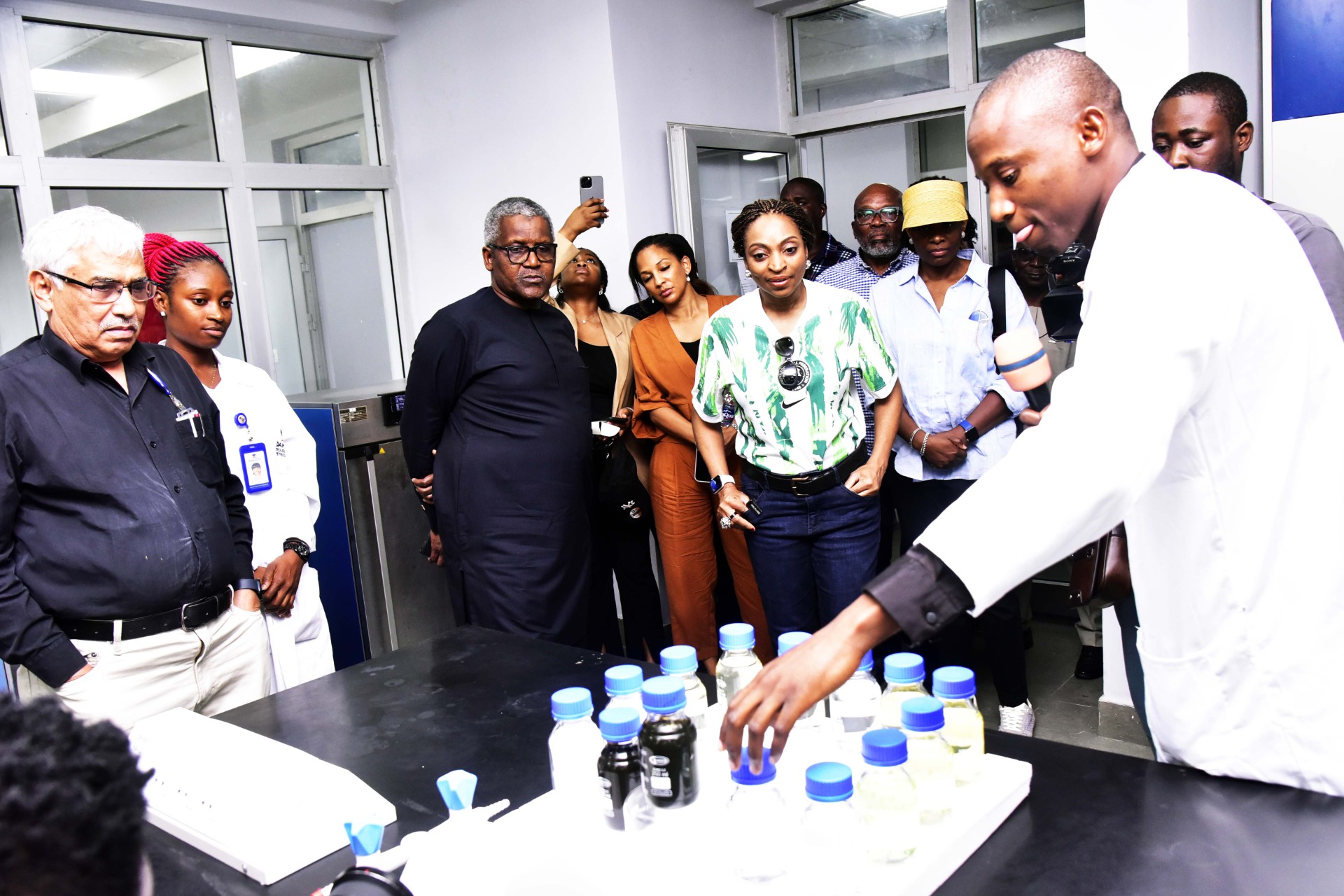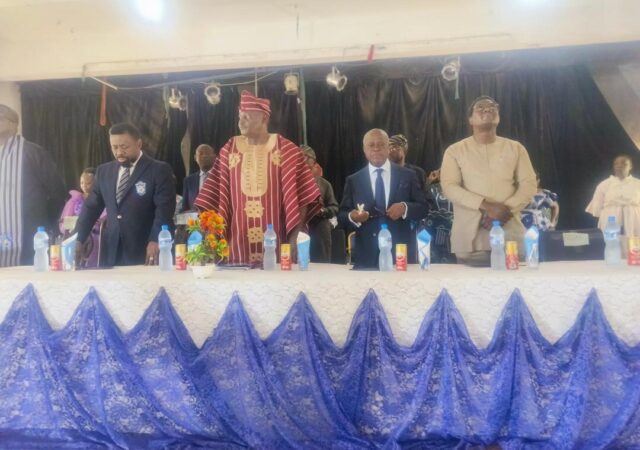Quality Assurance Officer, Dangote Petroleum Refinery Laboratory, Idris Rabiu, displays product samples from the refinery to the Minister of Industry, Trade and Investment, Dr Jumoke Oduwole, during her visit to the Dangote Petroleum Refinery and Fertiliser Plant in Lekki, Lagos, at the weekend.
In a resounding endorsement of Nigerian industrial capacity and local talent development, the Federal Government has commended the Dangote Petroleum Refinery for its groundbreaking achievements in engineering and its exceptional investment in human capital.
During an official visit to the world-class facility in Lagos, Dr. Jumoke Oduwole, Nigeria’s Minister of Industry, Trade and Investment, described the refinery as a beacon of industrial excellence and a model for national capacity-building. The visit offered a firsthand view of the refinery’s enormous scale, technological sophistication, and transformative impact on local skills development.
“We are not just appreciating the scale of the infrastructure: the bricks, mortar, and pipelines,” Dr. Oduwole remarked. “We are equally impressed by the investment in human capital. It is deeply inspiring to see young Nigerians—many of whom have never left the country—operating world-class equipment with remarkable professionalism.”
A seasoned academic and former university lecturer, Dr. Oduwole emphasized the personal significance of witnessing young engineers excelling in such a technically demanding environment. “As a lecturer, I take great pride in their excellence in engineering. It is nothing short of exceptional,” she added.
The Minister also commended Aliko Dangote, President of Dangote Group, for his sustained vision in driving industrial transformation in Nigeria. “Listening to Alhaji Dangote speak about this project is always inspiring. This isn’t just a refinery—it is a bold statement of what’s possible in Nigeria. Nowhere else in the world do you have a facility of this scale with such ambition.”
The tour was led by Mr. Edwin Devakumar, Vice President, Oil & Gas at Dangote Industries Limited, who highlighted the technological and operational capacity of the 650,000 barrels-per-day refinery—the largest single-train refinery in the world.
According to Devakumar, the facility produces Euro-V grade fuels, including petrol, diesel, jet fuel, and polypropylene, meeting all of Nigeria’s domestic needs with surplus volumes designated for export. He underscored the refinery’s environmental compliance and integration of cutting-edge technologies to deliver cleaner, globally competitive fuels.
Notably, the refinery features a self-sufficient marine terminal for crude and product handling and a 435MW power plant, which can power the entire service area of the Ibadan Electricity Distribution Company, covering five states in southwestern Nigeria.
“We are among the few companies globally to execute both a petroleum refinery and petrochemical complex in-house as an EPC contractor,” Devakumar stated. “We trained and employed over 60,000 skilled Nigerians during the project—giving them hands-on experience in engineering, testing, and commissioning.”
Beyond infrastructure, one of the refinery’s most profound impacts lies in its human capital development. Many of the Nigerian engineers trained on the Dangote project are now working as expatriates in the UAE and other countries—an unexpected but welcome outcome that contributes to national prestige and foreign remittance inflows.
The company’s commitment to developing Nigerian engineers has not gone unnoticed. The Nigerian Content Development and Monitoring Board (NCDMB) recently applauded the Dangote Group’s investment in local talent, as did key engineering bodies during a joint facility tour.
The delegation—which included the Nigerian Society of Engineers (NSE), Nigerian Academy of Engineering (NAE), Association of Consulting Engineers in Nigeria (ACEN), and Council for the Regulation of Engineering in Nigeria (COREN)—praised the high level of local involvement in the refinery’s design, construction, and ongoing operations.
The Dangote Petroleum Refinery is more than an industrial project—it is a symbol of what Nigeria can achieve when bold vision meets strategic investment and local empowerment. With the capacity to end Nigeria’s dependence on imported refined products, create thousands of jobs, and stimulate allied industries, the refinery is poised to be a cornerstone of Nigeria’s economic renaissance.
As the country looks toward an industrial and energy-secure future, the Dangote Refinery stands not just as infrastructure—but as a monument to engineering excellence, youth empowerment, and national pride.







